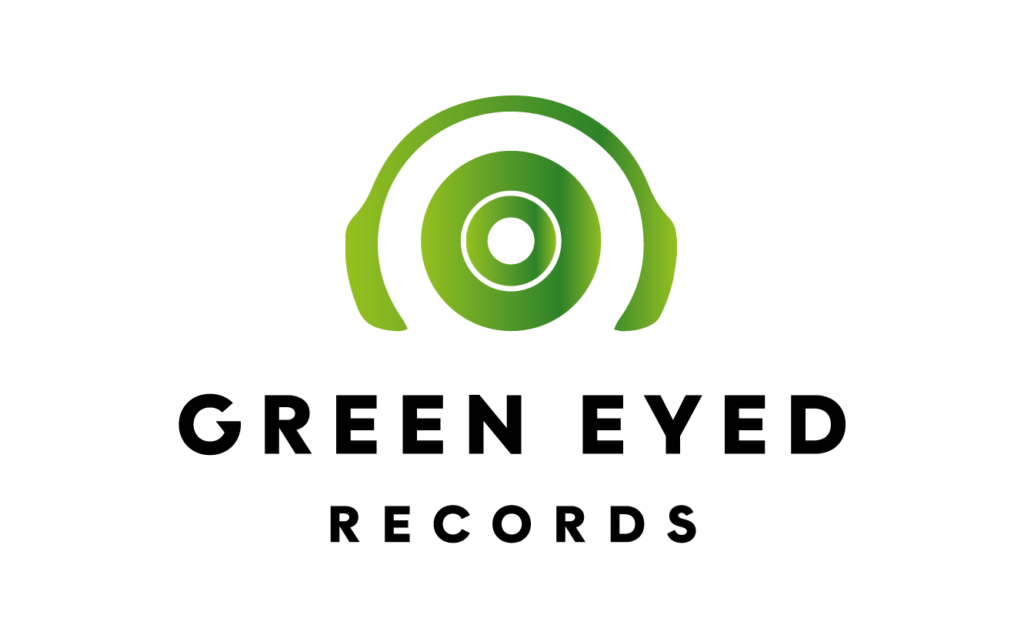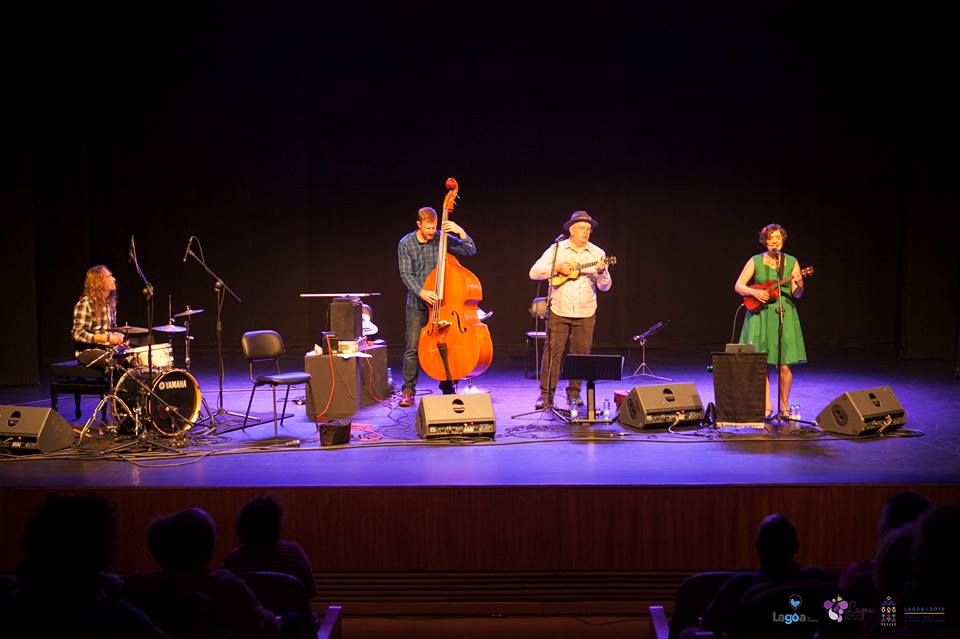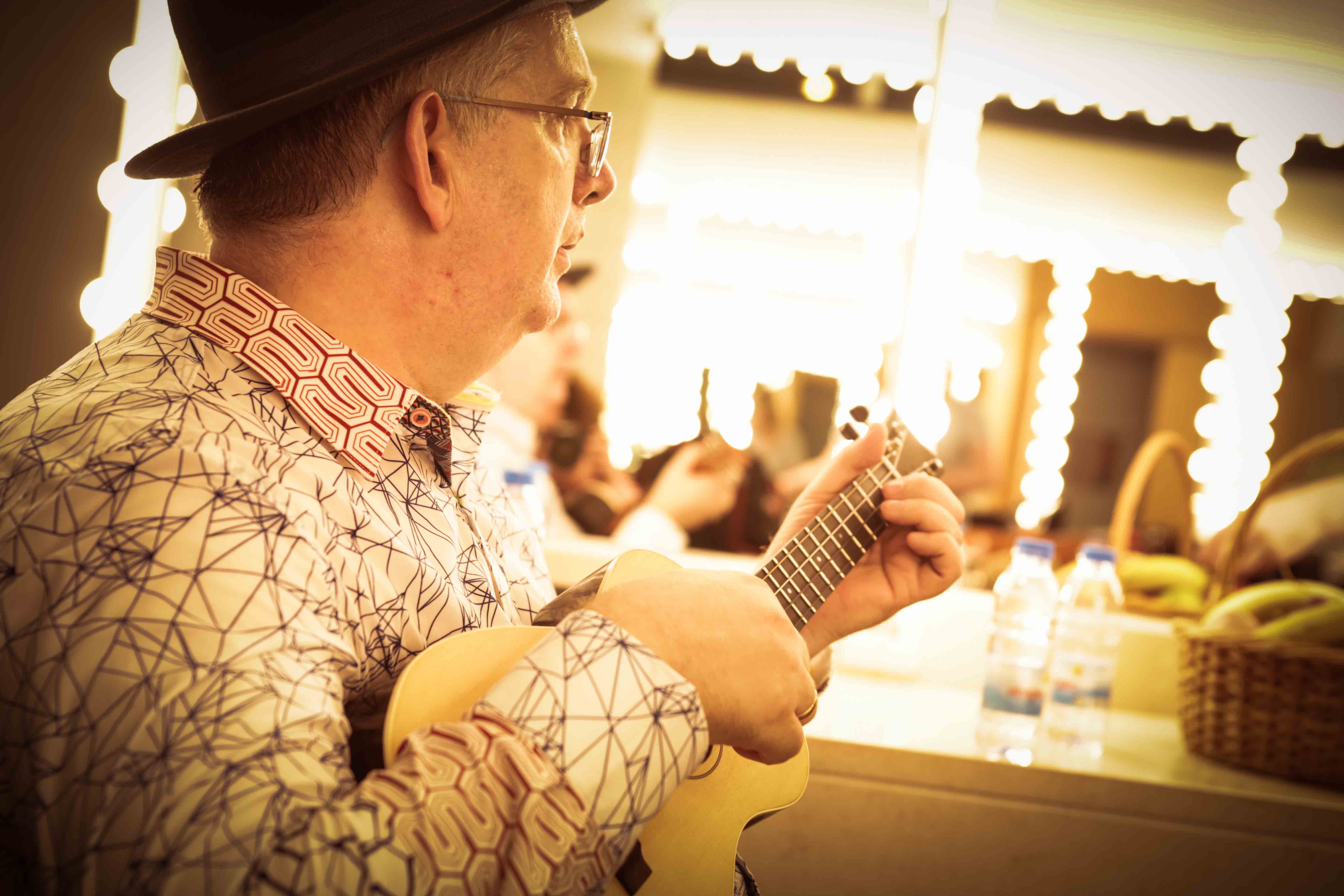In recent years, I’ve been thinking a lot about music distribution and music deals. I’ve always been a massive music lover and set up Music for The Head and Heart and now Green Eyed Records as platforms to support musicians and help promote great music. With Music for the Head and Heart I approached the great rock journalist Sylvie Simmons to perform one of her songs. I’ve followed her writing for literally decades and now find she is a great performer and lover of ukuleles.
I was delighted when she agreed to interview me for Green Eyed Records on the concept of this platform. The central concept is “creativity through collaboration” and I talked about this in the Sylvie interview
“What’s the idea for Green Eyed Records?
The idea for Green Eyed Records was a little bit influenced by Robert Fripp’s original idea in ’92 when he talked about is to reduce the distance between the people who are creating the music and the people who are consuming it. That was already starting to happen with things like Patreon and Kickstarter. Fripp wonderfully described it as “a model of ethical business in an industry founded on exploitation, oiled by deceit, riven with theft and fuelled by greed.” Don’t hold back, Fripp, just say what you mean!
So my thinking is: In the old days one of the main limitations on things was the ability to get to the wider public. The internet helps with that – YouTube and Social Media – so there are mechanisms to get to more people. The last information I had is that every day 60,000 tracks are uploaded to Spotify and the renumeration for that per play is absolutely miniscule, which is great for the tech companies and other people, but not for the people actually creating the product. It has to be funded in some way. And the only way I can think of this actually working is if people work together in some collaborative way so that we can, remove as many of the intermediary people as possible between the audience and the providers of the entertainment. That throws up a whole bunch of challenges of course, but I don’t see another way of doing it. Because unless you’re extremely established and you’ve been around for a very long time and you’re riding the momentum of what you’ve done before, the current model’s not going to work.
“Creativity through Collaboration” is Green Eyed Records’ motto. It’s a great line, but what came to my cynical British mind was, is this some kind of hippie dream? Like those kibbutzes in the 60s where you’ve got a guy who knows how to saw the wood and a girl who knows how to make curtains, and when evening falls they all sit around the campfire singing Kumbaya. Is this what you have in mind?
Hopefully there’ll be no Kumbaya singing! But herein lies the challenge.”
Herding musical cats?
Since 2014, in heading different acoustic and electric ensembles, I’ve realised the importance of being organized and working with like minds. I’m lucky to have a brilliant producer in Carl Rosamond and he’s been invaluable in creating over 70 tracks to date including 45 during this covid era. I’ve also been amazed at the amount of time it spends to organize events , band rehearsals and live gigs. One of the earliest examples of the need for organization was when the first band “The Small Change Diaries” in playing at the Lagoa Guitar Festival. I’d only played a few gigs before this outing, and this was a true baptism of fire. I was also lucky enough to meet my great friend Laurent Zeller, who has played on subsequent tracks with both “The Small Change Diaries” and “The Caravan of Dreams.”
“The music business” is like any other business!
I’m currently working on a number of very different musical projects, including “Nick Cody & The Heartache” which is an all electric roots outfit, Code – E1 which is all electronic music, a pop album and an album of duets. I’ll also be looking at GER and Music for The Head and Heart in 2022. One of the keys to success is to find like minds. I’m forever told about how things “can’t work” while I demonstrate the exact opposite. I have also realised that “the music business” is like any other business, its a series of trades and the question is for all those involved “Is it a good trade?”
Some artists can have superb creative skills, but can be quite delusional when it comes to marketing an basic business. I’ve thrown out great no strings attached financial opportunities to some people and some just don’t understand basic business strategy. Its not about “working for the man” or other such daft statements, but rather thinking about the steps best needed to reach your chosen audience. I’m reassured that there are some great resources online that echo my exact thoughts and highly recommend Rick Beato and Glenn Fricker both very outspoken but in my view very smart. Crucially they have the experience to offer useful advice and this confirms that “the music business is like any other business”
Of course there’s no right or wrong, just different ways of working. One thing is certain, music remains central to my life and I have had a blast meeting so many fantastic people, including Sylvie Simmons, Martin Simpson, Jon Gomm, and too many others to mention from all over the globe. I recently spent the weekend with a friend who has sold over 25 million albums and once again we agreed that “The music business is like any other business”



